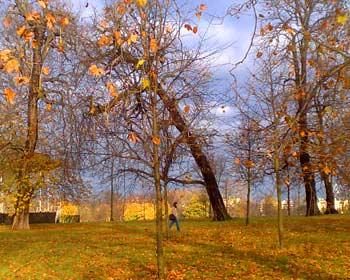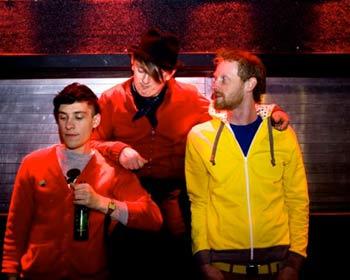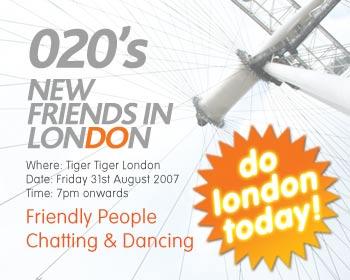It’s that time of year again. Time to say farewell summer and hello cold weather and long dark nights. I mean, what exactly is there to do in October, aside from the obvious pumpkin carving and bemoaning of Christmas tat?
The Times bfi 49th London Film Festival, that’s what. The capital’s most exciting and diverse film event starts on Wednesday 19th October and continues until Thursday 3rd November. Over 180 feature films will be screened in 13 venues across London, alongside documentaries, restored classics, shorts, animation and experimental work.
This is a fantastic opportunity to see films before they go on general release, attend galas and screen talks with famous directors and actors, or take part in film workshops and events. I spoke to festival producer Helen Dewitt for the lowdown on this year’s program.
How did the London Film Festival first come about and who started it?
The London Film Festival started in 1956 and was the brainchild of Dilys Powell (1901-1995), one of Britain’s most eminent and influential film critics. She persuaded the Sunday Times newspaper (where she worked) and the British Film Institute (where she was a Governor) to host the ‘festival of festivals’ here in London. It was to be a celebration of the best in contemporary world cinema and an opportunity for critically acclaimed films to be given the exposure they deserved. Twenty films were screened that year and the festival became an annual event, now in its 49th year.
What inspired you to become involved in film and ultimately with the festival?
Film has always been a keen interest of mine. Watching westerns with my father as a child first sparked my love of cinema. I took every opportunity that came my way, from running the film society at college to eventually becoming the producer of the London Film Festival. My enthusiasm is driven by my desire to share with other people the ‘wow’ factor experienced when watching a great film. I see my position as a unique opportunity to introduce such films to an audience who will appreciate them.
What types of film are shown at the festival and who comes to see them?
The Times bfi 49th London Film Festival welcomes people of all ages interested in film, from the avid arthouse buff to the casual cinemagoer. We encompass a broad and diverse range of cinema to suit as many different tastes as possible and this always includes family screenings, shorts and animation. Our aim is to represent many different genres at the festival from the serious or experimental to the light-hearted, so that there is something for everyone to enjoy.
On what criteria are films shortlisted and who decides which films will be screened?
Screening decisions are made by the festival programming team, which includes artistic director Sandra Hebron and Michael Hayden amongst others. However, the festival does have a truly international input. We consider the views and opinions of film advisors with specialist knowledge from all over the world, who all contribute something unique and help make the festival what it is.
What has been the most controversial screening in the history of the festival?
Both David Cronenburg’s ‘Crash’ (1996) and ‘Gummo’ (1997) written and directed by Harmony Korine, sparked public controversy at the time. Isn’t it strange how films viewed as highly controversial and pushing the boundaries of acceptable cinema only a few years ago are now deemed suitable for television viewing?
Absolutely. What are your views on censorship?
The censorship issue is no longer the topic of hot debate it was less than a decade ago, due to the BBFC (British Board of Film Classification) relaxing its prohibitive stance, a victory for freedom of choice in this country. Indeed, the BBFC has neither banned nor cut an 18 rated film for several years. The uncut release of Michael Winterbottom’s ‘9 songs’ (containing graphic sex scenes) last year marked a milestone in the history of British cinema.
I do believe in certification as a reliable means of allowing viewers to make informed choices, particularly as a guide for parents wishing to regulate what their children see and decide what is suitable for them.
Which country do you feel is producing the best cinema at the moment and why?
For a country of such relatively small size, Belgium is producing some excellent work, with three films in the festival this year. France as ever remains the most prominent European contributor to the film industry, with Brazil and Korea also well represented.
How do British filmmakers compare with their contemporaries and is there any up-and-coming talent to look out for?
British filmmakers differ from their contemporaries in that they are more prepared to tackle serious and hard-hitting issues for an intelligent audience. Our homegrown filmmaking talent is so diverse, ranging as it does from well established directors such as Guy Richie and Michael Winterbottom to the relatively unknown newcomers. During London Film Festival we try to give exposure to deserving films from the less high profile but highly talented crop of British filmmakers.
This year we are showing some remarkable directional debuts: ‘Mirrormask’ (2005) co-written and directed by acclaimed comic-strip artist Dave McKean, which is one of my personal favourites; ‘Song of Songs’ (2005) Josh Appignanesi’s bold debut feature, set among London’s Orthodox Jewish community, a world rarely represented in British film; ‘Stoned’ (2005) Stephen Woolley’s directorial debut based on the infamous book Who Killed Christopher Robin? by Terry Rawlings and ‘Love + Hate’ (2005) a timely study of racial tension in Northern England directed by Dominic Savage.
Do you prefer to watch the film or read the book?
This question would have to be answered on a case-by-case basis, depending on the story, director and cast. We hope audiences will agree that our opening night film, Fernando Meirelles’ ‘The Constant Gardener’ (2004) is an original and faithful adaptation of John Le Carr?’s acclaimed novel.
Does your job involve meeting celebrities, and if so, who has been the best one you’ve met?
The festival does attract many a celebrity to London, particularly at the Gala Parties hosted by the Times. I have been lucky enough to meet many interesting people in this line of work, including some celebrities. Although I only met her briefly, I felt it was a great privilege to meet the wonderful actress Julie Christie at last year’s festival.
Which director do you most admire and why?
My all-time favourite director would have to be Rainer Werner Fassbinder (1946-1982), a radical, rebellious gay German director whose work encompassed a huge number of issues at a crucial point in the history of his home nation. Currently I’m very interested in the work of another German director named Fred Kelemen, whose latest film ‘Fallen’ (2005) is part of this year’s festival. I also admire the work of Steven Soderbergh whose latest film ‘Bubble’ (2005) is also showing.
If you were only able to watch one film at the festival this year, which would it be and why?
That would be a very tough decision because there are just so many excellent films in the line-up. I’d be hard-pushed to choose between Michael Haneke’s ‘Hidden’ (2005) this year’s French Gala, ‘The Proposition’ (2005) our MTV Special Screening, directed by John Hillcoat and written by Nick Cave and ‘L’enfant’ (2005) winner of the second Cannes Palme d’Or award for the Dardenne brothers and Time Out critic’s choice for the festival.


